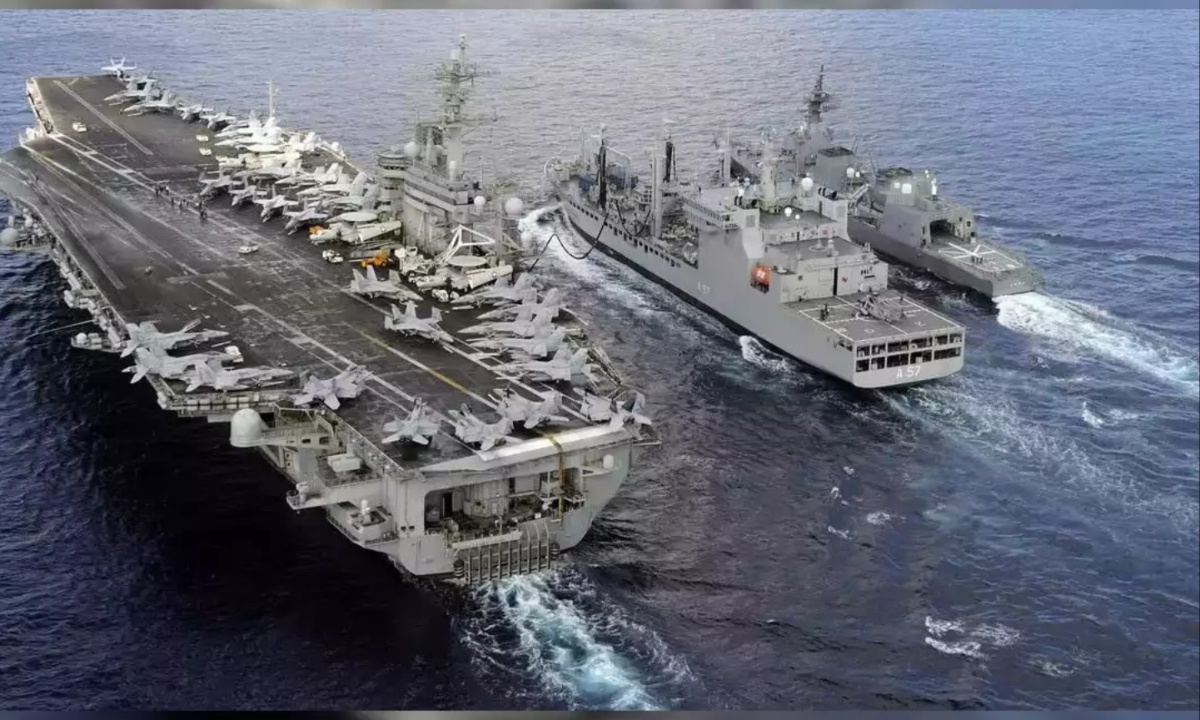India will host the 28th Malabar naval exercise with the US, Japan, and Australia in the Bay of Bengal this October. The goal is to improve how these countries’ navies work together, especially as tensions rise due to China’s actions in the South China Sea and the Indian Ocean Region. This year’s focus will be on advanced anti-submarine warfare, with drills to enhance their ability to fight together effectively.
Originally a bilateral exercise between India and the US since 1992, Malabar has evolved to include Japan and Australia as regular participants. Last year, it was held in Sydney, following previous iterations hosted by Japan. The decision not to invite additional participants this year underscores its strategic intent to strengthen the collective defense and operational preparedness of the Quad nations without expanding membership.
The timing of Malabar aligns closely with India’s first major multi-nation air combat exercise, Tarang Shakti, scheduled for August-September. This dual emphasis underscores regional concerns over China’s expansive military presence and its “grey zone” tactics, evident in territorial disputes and infrastructure development across the Indo-Pacific region.

India will host the 28th Malabar naval exercise with the US, Japan, and Australia in the Bay of Bengal this October. The goal is to improve how these countries’ navies work together, especially as tensions rise due to China’s actions in the South China Sea and the Indian Ocean Region. This year’s focus will be on advanced anti-submarine warfare, with drills to enhance their ability to fight together effectively.
China’s growing naval capabilities, highlighted by its large fleet and strategic installations like Djibouti, pose a significant challenge. Beijing’s maneuvers in the IOR, including anti-piracy operations and enhanced maritime surveillance, reflect its broader geopolitical ambitions and efforts to secure logistical support and influence in key African nations.
India, in response, has intensified military cooperation with Quad partners and other nations through bilateral and multilateral agreements. This includes logistical arrangements for refueling, repair, and berthing facilities, aimed at enhancing operational flexibility and collective security in the region.
Concurrently, Indian naval assets like INS Shivalik and P-8I aircraft have been actively participating in international exercises, such as RIMPAC, underlining its commitment to maritime security and regional stability.
Overall, Malabar represents a critical component of the Quad’s strategy to promote a free and inclusive Indo-Pacific region amidst China’s disruptive actions. By fostering shared values and operational synergy among member nations, the exercise seeks to counterbalance China’s influence and ensure maritime security across vital sea lanes and strategic waterways.
